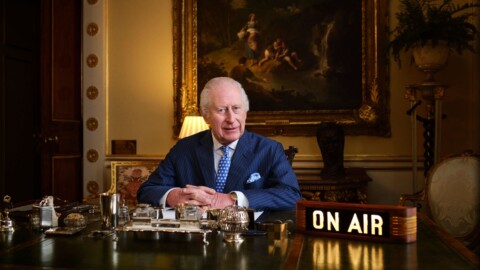Since February 2025, global music streaming giant Spotify has been making notable deductions from the streaming counts of various artists.
These subtractions have particularly impacted several Nigerian stars, especially in a fresh round of stream reductions that occurred in early April. The adjustments have sparked concern among music fans and industry stakeholders, who are demanding clarity over the missing numbers.
However, Spotify has yet to release an official statement explaining the rationale behind the subtractions. Despite the silence, many observers believe the action is tied to the platform’s ongoing battle against fraudulent streaming practices—an issue that has long plagued digital music ecosystems.
Spotify’s public policy is clear about its stance on artificial streams and manipulation. The platform prohibits artists from using third-party services that promise guaranteed streams in exchange for money. These actions, according to Spotify, not only violate their terms but also compromise the integrity of their streaming ecosystem.
“Paid 3rd-party services that guarantee streams aren’t legitimate,” the company states in its guidelines. “3rd-party promotional services that advertise streams in return for payment violate our terms & conditions, and using them could result in your music being removed from Spotify.”
Further emphasizing its position, Spotify warns artists against engaging with services that offer playlist placements for a fee. “Any service that claims to offer guaranteed placement on playlists on Spotify in exchange for money are in violation of our terms & conditions, and they shouldn’t be used,” the platform says. This policy aims to level the playing field and ensure that only authentic streams—generated by genuine listeners—count towards an artist’s performance metrics.
It’s part of Spotify’s broader effort to uphold fairness and transparency in a space increasingly challenged by underhanded tactics.
When artificial streaming is detected, Spotify has a range of penalties it may apply. These include adjusting the public stream counts to reflect accurate data, removing affected songs from playlists, and even withholding royalties linked to the manipulated numbers.
“When we identify confirmed cases of artificial streaming or stream manipulation, we take actions that may include the withholding of associated royalties, the correction of public streaming numbers, and measures to ensure the artist or song’s popularity is accurately reflected in our charts,” Spotify explains.
They add, “Depending on the severity of the artificial streaming detected, the song may also be removed from Spotify playlists.”
This latest crackdown shines a spotlight on a broader issue that continues to challenge the credibility of digital streaming platforms worldwide. In Nigeria, where music is a major cultural export and source of national pride, these deductions have raised eyebrows and reignited debates about the integrity of digital success.
With artists often judged by the size of their streaming numbers, the temptation to engage in manipulative practices has grown. But Spotify and similar platforms insist that these shortcuts not only tarnish an artist’s reputation but also distort the industry’s reward system.
The problem is not limited to Nigeria. In 2024, global superstar Drake accused Universal Music of using bot streams to boost the popularity of Kendrick Lamar’s viral hit, “Not Like Us.”
Although the claim sparked widespread controversy, it underscored how deeply the industry is entangled with the problem of artificial inflation. Spotify, like other streaming services, has reiterated its zero-tolerance stance toward fraudulent streams, describing them as a means of gaining unfair advantage and denying other deserving artists their rightful earnings.
As the industry continues to evolve, so too must its safeguards—ensuring that success on streaming platforms remains a reflection of genuine audience engagement.










